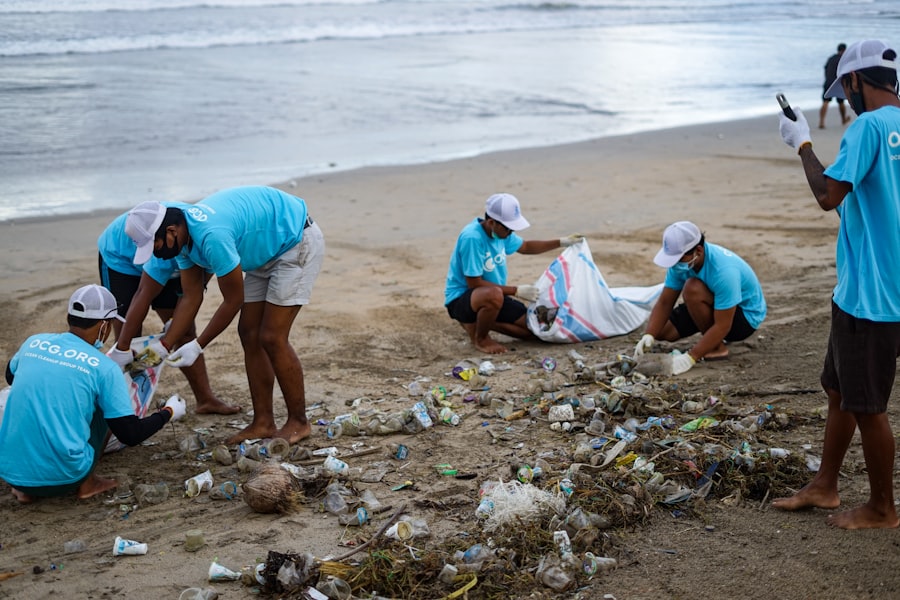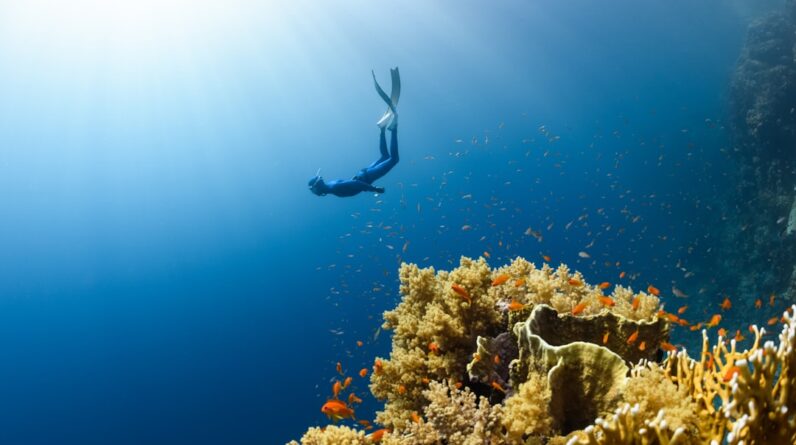
As you stand on the shore, gazing out at the vast expanse of blue, it’s easy to forget that the ocean is not just a beautiful backdrop; it is a vital component of our planet’s ecosystem. The oceans cover more than 70% of the Earth’s surface and are home to an incredible diversity of life. They play a crucial role in regulating the climate, producing oxygen, and providing food and livelihoods for millions of people worldwide.
Understanding the importance of ocean conservation is essential, as the health of our oceans directly impacts our own well-being and that of future generations. The threats facing our oceans are numerous and alarming. From pollution and overfishing to climate change and habitat destruction, human activities have taken a significant toll on marine ecosystems.
As you delve deeper into these issues, you may realize that the consequences extend far beyond the water’s edge. The degradation of ocean health can lead to diminished fish stocks, loss of biodiversity, and even increased natural disasters. By recognizing the importance of ocean conservation, you empower yourself to become an advocate for change, ensuring that these vital resources are preserved for years to come.
Key Takeaways
- Ocean conservation is crucial for the health of our planet and the well-being of future generations.
- Educating yourself on ocean conservation issues is essential to understanding the challenges and potential solutions.
- Taking action to advocate for ocean conservation can involve participating in beach clean-ups, supporting marine protected areas, and reducing plastic use.
- Building a network of like-minded individuals and organizations can amplify your impact and create a stronger collective voice for ocean conservation.
- Utilizing social media and online platforms for advocacy can help raise awareness and mobilize support for ocean conservation efforts.
Educating Yourself on Ocean Conservation Issues
To effectively advocate for ocean conservation, you must first educate yourself about the various issues affecting marine environments. This involves researching topics such as plastic pollution, coral reef degradation, and the impact of climate change on ocean temperatures. You can start by reading books, articles, and scientific journals that focus on marine biology and environmental science.
Documentaries and educational videos can also provide valuable insights into the challenges our oceans face and the innovative solutions being proposed. Engaging with local organizations dedicated to ocean conservation can further enhance your understanding. Many groups offer workshops, lectures, and community events that provide opportunities to learn from experts in the field.
By attending these events, you not only gain knowledge but also connect with others who share your passion for protecting our oceans. As you become more informed about these issues, you will be better equipped to discuss them with others and advocate for meaningful change.
Taking Action to Advocate for Ocean Conservation

Once you have a solid understanding of ocean conservation issues, it’s time to take action. Advocacy can take many forms, from participating in local clean-up efforts to lobbying for policy changes at the national level. You might consider organizing or joining beach clean-ups in your community, where you can help remove debris that threatens marine life while raising awareness about pollution.
These hands-on experiences not only contribute to a cleaner environment but also inspire others to get involved. In addition to grassroots efforts, you can also engage in advocacy through writing. Consider penning letters to your local representatives or submitting opinion pieces to newspapers about the importance of ocean conservation.
Your voice matters, and by articulating your concerns and suggestions, you can influence decision-makers to prioritize policies that protect marine ecosystems. Remember that every small action counts; whether it’s sharing information with friends or participating in larger campaigns, your efforts contribute to a collective movement toward ocean conservation.
Building a Network of Like-Minded Individuals and Organizations
Building a network of like-minded individuals and organizations is crucial for amplifying your advocacy efforts. Start by connecting with local environmental groups focused on ocean conservation. Attend their meetings, volunteer for events, and engage in discussions about ongoing projects.
By surrounding yourself with passionate individuals who share your commitment to protecting the oceans, you create a support system that can inspire and motivate you. Online platforms also offer opportunities to connect with global organizations dedicated to marine conservation. Joining forums or social media groups focused on ocean issues allows you to exchange ideas, share resources, and collaborate on initiatives.
Networking with others who are equally passionate about ocean conservation can lead to new opportunities for activism and education. Together, you can brainstorm innovative solutions and strategies to address the pressing challenges facing our oceans.
Utilizing Social Media and Online Platforms for Advocacy
In today’s digital age, social media serves as a powerful tool for advocacy. You can leverage platforms like Instagram, Twitter, and Facebook to raise awareness about ocean conservation issues and share valuable information with your followers. By posting articles, infographics, or personal stories related to marine conservation, you can engage your audience and encourage them to take action as well.
Consider creating or joining online campaigns that focus on specific ocean conservation initiatives. Many organizations run hashtag campaigns that aim to spread awareness about particular issues or events. By participating in these campaigns, you not only amplify your voice but also connect with a broader community of advocates who are working toward similar goals.
Social media can be an effective way to mobilize support for petitions or fundraising efforts, making it an essential component of modern advocacy.
Engaging with Local and National Government Officials

Engaging with local and national government officials is a critical step in advocating for ocean conservation. Start by researching your representatives’ positions on environmental issues and identifying those who prioritize marine protection. You can schedule meetings with them or attend town hall events where you can voice your concerns directly.
When speaking with officials, be prepared with facts and data that highlight the importance of ocean conservation and the potential consequences of inaction. Additionally, consider participating in public comment periods for proposed legislation related to ocean conservation. This is an opportunity for you to express your views on policies that could impact marine ecosystems.
By actively engaging with government officials, you contribute to a democratic process that holds leaders accountable for their decisions regarding environmental protection.
Supporting and Participating in Ocean Conservation Initiatives and Events
There are countless initiatives and events dedicated to ocean conservation that you can support or participate in. Look for local organizations that host educational workshops, beach clean-ups, or fundraising events aimed at protecting marine environments. By getting involved in these activities, you not only contribute your time and effort but also help raise awareness within your community.
Consider participating in global events such as World Oceans Day or International Coastal Cleanup Day. These events bring together individuals from around the world who share a common goal: protecting our oceans. By joining forces with others during these initiatives, you amplify your impact while fostering a sense of community among fellow advocates.
Continuing to Learn and Stay Informed about Ocean Conservation Efforts
Ocean conservation is an ever-evolving field, with new research and developments emerging regularly. To remain an effective advocate, it’s essential to continue learning about ongoing efforts and challenges facing marine ecosystems. Subscribe to newsletters from reputable organizations focused on ocean conservation or follow scientific journals that publish research related to marine biology.
Engaging in lifelong learning not only enhances your knowledge but also keeps you informed about new advocacy strategies and successful initiatives from around the world. Attend conferences or webinars where experts discuss current trends in ocean conservation; these events provide valuable insights into innovative solutions being implemented globally. By staying informed, you position yourself as a knowledgeable advocate who can inspire others to join the fight for our oceans.
In conclusion, understanding the importance of ocean conservation is just the beginning of your journey as an advocate for change. By educating yourself on relevant issues, taking action within your community, building networks of support, utilizing social media effectively, engaging with government officials, participating in initiatives, and committing to lifelong learning, you can make a significant impact on the health of our oceans. Your efforts will not only benefit marine ecosystems but also contribute to a sustainable future for generations to come.
If you are passionate about ocean conservation, you may also be interested in learning about how planting trees can help combat deforestation. This article on how planting trees helps deforestation discusses the important role that trees play in maintaining biodiversity and protecting our planet’s ecosystems. By advocating for both ocean conservation and reforestation efforts, we can work towards a more sustainable future for all living beings.
FAQs
What is ocean conservation?
Ocean conservation refers to the protection and preservation of the world’s oceans and marine ecosystems. It involves efforts to address issues such as overfishing, pollution, habitat destruction, and climate change that threaten the health and sustainability of the oceans.
Why is ocean conservation important?
Ocean conservation is important because the oceans play a crucial role in regulating the Earth’s climate, providing food and livelihoods for millions of people, and supporting a diverse array of marine life. Healthy oceans are essential for the well-being of both human societies and the planet as a whole.
How can individuals advocate for ocean conservation?
Individuals can advocate for ocean conservation by supporting policies and initiatives that promote sustainable fishing practices, reduce plastic pollution, and mitigate the impacts of climate change on the oceans. This can be done through actions such as reducing plastic use, supporting marine protected areas, and participating in beach clean-ups.
What are some organizations working on ocean conservation?
There are numerous organizations dedicated to ocean conservation, including Oceana, The Ocean Conservancy, Surfrider Foundation, and Sea Shepherd Conservation Society. These organizations work on a range of issues related to ocean conservation, from advocating for marine protected areas to combating illegal fishing.
How can businesses contribute to ocean conservation?
Businesses can contribute to ocean conservation by adopting sustainable practices that minimize their impact on the oceans, such as reducing plastic packaging, sourcing seafood from sustainable fisheries, and supporting initiatives to reduce carbon emissions. They can also support ocean conservation efforts through corporate social responsibility initiatives and partnerships with conservation organizations.





